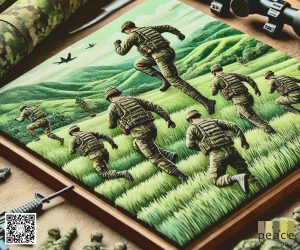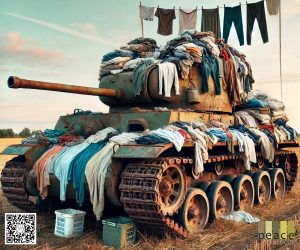Research and Analysis

Is Armenia’s Path to ICC Accountability Threatened by the Draft Peace Agreement with Azerbaijan?
This paper examines Armenia’s accession to the ICC amid evolving peace negotiations with Azerbaijan. It explores the legal and political obstacles to accountability and proposes alternative mechanisms for promoting justice and sustainable peace in the region.
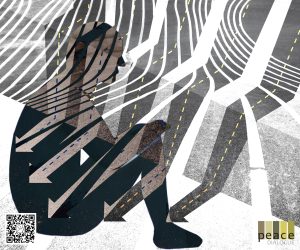
Building a Resilient Security Sector: A Roadmap for Transparent, Inclusive, and Accountable Defense Reforms in Armenia
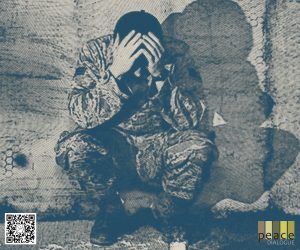
Tracking the Implementation of Armenia’s 2023-2025 Human Rights Action Plan: Achievements and Gaps in Right to Life in the Armed Forces
Ensuring the right to freedom from torture for persons brought before the Military Police

Experience shows that criminal cases involving torture only rarely reach the courts. This is also due to the difficulty (or nearly impossibility) of providing proof. In many cases, due to mistrust of judiciary institutions, citizens prefer to remain silent about torture cases. The accused believe that raising such issues may worsen their situation. Moreover, vicious practices show that they are the ones who have to prove that they have been subjected to torture. It is sufficient to note that no official in Armenia has yet been held responsible for ill-treatment and torture of another person: even in cases where torture and ill-treatment was recognized by the European Court of Human Rights (ECtHR).
The Final Report on the Monitoring of the Activities of the RA MoD within the Framework of the HRAP 2017-2019
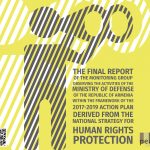
On the following pages you will find the final report on activities implemented by the RA Ministry of Defense within the framework of its 2017-2019 Action Plan (hereinafter Action Plan) derived from the National Strategy for Human Rights Protection. The report has been compiled by the Monitoring Group created as part of Peace Dialogue NGO’s (PD’s) initiative: “Proactive Civil Society Participation in the Protection and Promotion of Human Rights in the Armenian Armed Forces”.
Bi-Annual Report of Peace Dialogue on Human Rights in the Armenian Armed Forces/ Vol.9
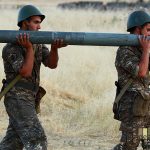
It seems encouraging and uplifting that the MoD places importance on human rights issues and that transparency and civilian control are Defense Ministry priorities. It is still not clear how these fundamental democratic changes can be achieved when the “Law on Military Service and the Status of Military Servicemen” is still in force despite having been criticized by civil society. The law, as well as the “Nation-Army” concept (which is still functioning) contains many risks and does not ensure sufficient involvement of different civil society groups.
Application of Techniques of Theater of the Oppressed in Peacebuilding Activities

The publication was primarily created to support the staff of organizations working in the field of peacebuilding; it shows them how to apply theater tools in their work. It places emphasis on the analysis of the effectiveness of some tools depending on work context, group interests and the outlook or views of activity beneficiaries. The material can serve as a resource for all persons interested in peacebuilding and the Theater of the Oppressed. Besides this, the manual may also be helpful for those who are taking their first steps in developing peacebuilding projects.
Interim Report of the Monitoring Group Observing the Activities RA MoD within the Scope of the National Strategy for Human Rights Protection for 2017-2019

The monitoring group formed within the scope of the “Proactive Civil Society Participation in the Protection and Promotion of Human Rights in the Armenian Military Forces” initiative is comprised of seven representatives of Human Rights and Media NGOs.
Comic Stripe “March 1: Who Said That It Was The Army That Shot People?”

Recently in the website of the Special Investigation Service of the Republic of Armenia a material has been published under the headline “The head of the former investigative group and the forensic expert on the March 1 criminal case have been involved as accused for falsification of evidence”. According to the material, during the preliminary investigation of the criminal case of the incidents of March 1, 2008, the head of the investigative group, together with the investigators, Police officers, and experts involved in the case falsified case-related evidences by substituting the bullets shot from guns belonging to units of Armed Forces for bullets released from the those belonging to the Police.
Human Rights in the Armed Forces. A Step-by-Step Guide for Future Conscripts
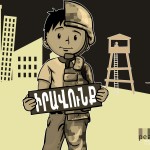
Dear visitors, Peace Dialogue NGO has released a step-by-step guide for future conscripts called “Human Rights in the Armed Forces.” The guide has been developed based on the issues raised by citizens, who have applied to Peace Dialogue NGO over the past years. That is to say, the authors tried to introduce pre-conscription and conscription aged young people to their rights concerning the compulsory military conscription, as well as the service itself, in an easier and more comprehensive way.


